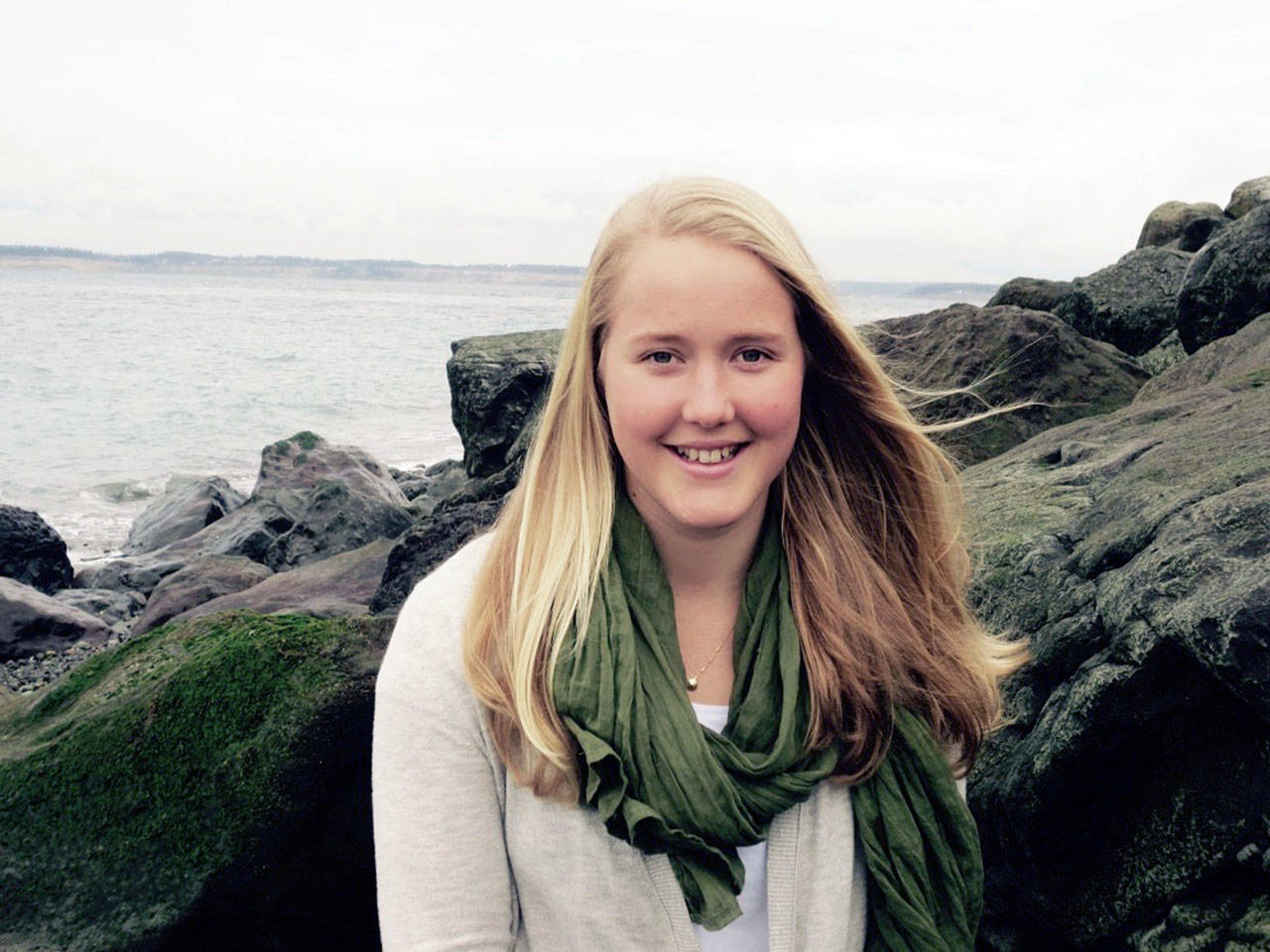PORT TOWNSEND — Eliza Dawson is a scientist who is passionate about the health of the planet. She’s also an NCAA championship athlete. And she thinks big.
Dawson decided to take on a serious challenge this June that combines her athleticism and her environmental interests.
She plans to participate in the Great Pacific Race, an endurance row — no sails or motors — that begins in Monterey, Calif., and ends 2,400 miles west in Honolulu, Hawaii.
The race is slated to start June 2, depending on conditions. This is the third year of the event, with a world record crossing of 50 days.
Dawson believes she can beat it.
“I hope to make it in 45 days, or faster if conditions are right,” she said.
She needs to raise money for the trip.
Dawson will host a fundraising kickoff at 7 p.m. Sunday at the Northwest Maritime Center that’s free to the public.
She’ll explain why she feels this challenge is a good way to raise awareness of climate change, and plans to bring attention to proposed legislation to reduce carbon emissions and proposals for a carbon tax.
“I’ll be talking about who I am, my background and experience, I’ll go over some scientific concepts about climate change, and my personal preparation for the race.”
Her goal is to raise $20,000 for a 24-foot-long boat, supplies and gear. Her wish list includes a drone and a GoPro camera to record her observations for scientific research and study.
Dawson grew up in Port Townsend, was home-schooled and attended the Running Start program through Peninsula College. She taught sailing at the maritime center for many summers, and participated in and won several sailing regattas.
“I spent every summer day, all day, out on the water,” she said.
She’ll graduate from the University of Washington this spring with a degree in Atmospheric Sciences, and plans to attend a doctoral program in climatology this fall.
She was a member of the UW’s NCAA national championship rowing team last year. Dawson is used to a racing shell that’s light, fast and powered by eight women.
The boat she’ll use for this adventure is quite different. It’s wider, heavier, has two cabins and is powered by four people. Instead of being on the Montlake Cut, she’ll be in the open ocean.
When she learned about the Great Pacific Race she immediately knew it was something that could challenge her physically and offer a rare opportunity to study the ocean at sea level.
“I got in touch with the race organizers and exchanged information,” she said.
“I was able to be matched with other people from around the world who were interested in this row, are highly qualified, and who are passionate about the environment. We came together virtually as a four-person team. We won’t physically meet until a couple weeks before the race, at the beginning of May in Monterey.”
Her teammates are Emma Rogers of England who rowed in the Henley Royal Regatta; Mariana Cadore, originally from Brazil who was on the Brazilian National Rowing Team; and Anna Kirkin, who is in the military.
So far, out of the six crews participating, Dawson’s team is the only one with a scientific mission.
“That’s the really special thing about our boat, Ripple Effect,” she said.
”We are four women from different parts of the world doing this row to raise awareness of climate change, micro-plastic pollution and other environmental issues,” she said. “No other boat has this focus.”
The plan is to have two people row two hours on, two hours off. The others will rest, eat, conduct experiments, make observations or just enjoy the view when not at work.
They’ll be followed by support yachts and have access to all emergency services if required. Their progress can be followed through tracking devices online, refreshed every two hours.
“We’ll be rowing through the Great Pacific Garbage Patch, a soup of marine debris, mostly plastics. We’ll be able to actually see some of it, collect samples and bring attention to that issue,” Dawson said.
Because she’s part of the scientific community, she believes she might have some advantages.
“I’ll be conferring with some people in the Atmospheric Sciences department to work on route optimization,” she said.
“I’ll apply things I’ve learned about climate change and weather prediction to determine the fastest route and develop some technology to create forecasts to help us gain an edge.
“I love the ocean, I’m not afraid of it. Just making sure everything is in order — everything works — is the key.
“I’m a scientist,” she continued. “I think mathematically. I think logically, scientifically. It would be very frustrating if technology fails us. So I’m going to research as much as I can so I can fix whatever might happen.”
Dawson plans to spend a couple weeks on the beach after the grueling challenge, collecting and categorizing her work, and preparing for her future.
She’ll be flying back home, high above the ocean, for a different perspective.
For more information: www.row4climate.com and www.newoceanwave.com/great-pacific-race/.
________
Jeannie McMacken is a freelance writer and photographer living in Port Townsend.

